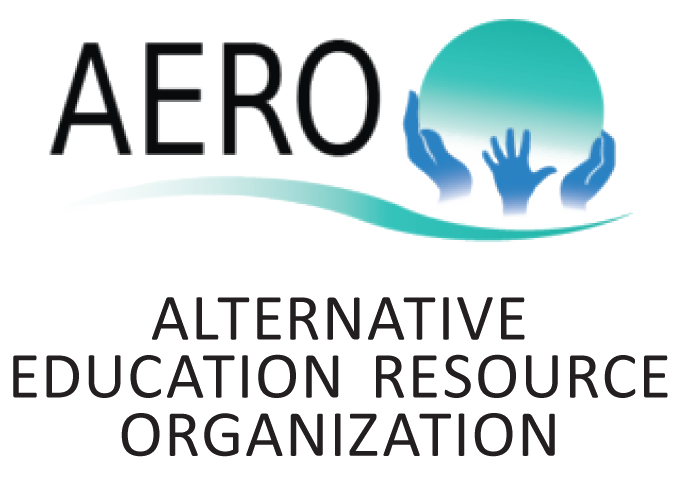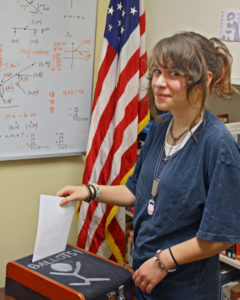I’m disappointed by America’s dysfunctional politics. And I bet you are, too. What really gets to me is the hyper-polarization and aggressive non-cooperation. I want to yell “Grow up, America!” — but that might be insulting to the kids I work with.
For me it’s personal because I know how America can grow up in two steps. First, turn schools into working democracies. Second, wait a generation. (Well, I didn’t say it would be quick.) Immerse kids in a self-governed society for 12 years and they’ll emerge knowing how to work stuff out with people who see the world very differently. They’ll have “cultural intelligence.”
Hear me out. Whatever your political tribe, I’ll tell you what’s wrong with the other team’s thinking and what’s right about yours. And heads up, I’m also going to mention what’s right about the other team’s thinking and what’s wrong with yours. Okay, yes, that’s a gutsy claim. But I’m not running for office and not asking for your vote. Just asking for your open mind for a few minutes.
First, more about schools as working democracies. I’m not making this up. I’ve worked in a democratic school for 37 years, I’m in daily communication with dozens of others, and I’ve written a book about it. I’ve seen how our graduates live fulfilling lives engaged in the world and practiced at working out thorny issues in thickets of disagreement. They have cultural intelligence.
In democratic schools (that’s a little d, not the capital D of the political party) students vote and legislate (yes, make laws) in a scaled-down version of America. Kids aren’t sorted by age into isolated classrooms. Instead, people of all ages share one community, one set of resources, and one government — even though the needs and perspectives of young children are very different from those of older children, and different again from those of teenagers. The stakes are real. Students and teachers together make the rules by majority vote. It’s not a game and teachers don’t get a veto. Personal liberty, rule of law, due process, trial by jury, freedom of speech, and so on: it’s all there, reflecting beautiful American ideals — and, yes, flawed application by imperfect human beings in messy life.
Crazy idea, you think, having kids decide important stuff? But is it crazier than the daily news? What’s crazy is that whichever political party is in power, they want to ram through their best and worst ideas. And whichever party is out of power, they want to oppose everything, automatically. Both parties try to make the other look bad. Grow up, America! We can be better! We need more cultural intelligence and kids who grow up with it in school.
Now about those political tribes — cultural tribes, really, or “worldviews,” three of them, each striving to dominate, and spread across the familiar left-right spectrum: Progressive, Modern, Traditional. Each developed historically and each pioneered some enduring values that most Americans can agree on. Each also developed some bad habits. With a bit of cultural intelligence, we can see that each has something good to offer, and each has a nasty side, too.
What? You don’t believe the part about most Americans can agree? Okay, maybe I’m wrong, but consider the three most common ways of seeing the world, in the historical order of their emergence — Traditional, Modern, Progressive — and take a deep breath when we get to the nasty side of your own favorite worldview.
The Traditional worldview, perhaps exemplified by Billy Graham, highly values duty, honor, faith, family, homeland, law and order. What’s not to like? These are enduring values with ancient roots, worthy and solidly grounding America still today. On the other hand, the Traditional worldview has spawned racism, sexism, bigotry, oppressive authoritarianism, anti-science, hostility to other views, and isolating tribalism. Nasty indeed.
The Modern worldview, perhaps exemplified by Milton Friedman, values science, reason, evidence, individual liberty, rule of law, economic progress, upward mobility, meritocracy. These, too, are important foundations of American life today (the need for improvement notwithstanding) and have brought dramatic advances in quality of life. On the other hand, the Modern worldview has produced its own excesses: environmental degradation, systemic racism, inequality, materialism, greedy capitalism, and hostility to Traditional. Ouch.
The Progressive (or postmodern) worldview, perhaps exemplified by Elizabeth Warren, values the natural environment, planetary healing, social justice, multiculturalism, universal morality — a whole new level of care and sensitivity, worthy of widespread application for a better world. Wouldn’t we all agree? On the other hand, this newest of the major worldviews, still growing into maturity, at its worst also brings anti-modernism, anti-science, reverse patriotism, moral relativism, identity politics, narcissism, tyrannical demands, hostility to other views, and isolating tribalism.
Is it any wonder we are so split apart.
Like the larger world, democratic schools are layered with worldviews — based on stages of maturity rather than cultural tribes, but posing the same kind of challenges. School rules and policies are forged in public dialogue, striving to rise above differing needs, wants, and abilities, while honoring foundation values and sustaining the school’s viability. Every week, students and staff collaborate and debate to find new solutions to new problems.
We call it “practicing life” — kids figuring out how to live fulfilling lives, responsible for self and community, engaged with people who often don’t think as they do. Ideally, it’s not about compromise. It’s about understanding differences — cultural, social, economic, personal — and looking for ways to honor the true part of each viewpoint while leaving the rest behind.
America can grow up. Kids can lead the way.
-Jim Rietmulder
NOTE: For more about cultural intelligence, I highly recommend the book Developmental Politics: How America Can Grow Into a Better Version of Itself by Steve McIntosh, from which I’ve drawn for this post, and the Institute for Cultural Evolution. For more about democratic schooling, I recommend my own book When Kids Rule the School: The Power and Promise of Democratic Education.



Food for thought, thanks!
Thinking of American political sentiment as three tribes is an intriguing concept. In what ways, if at all, do you think the nuance exists for those who do not exist in these tribes?
Have you seen a similar tribal existence at The Circle School or other intentionally democratic schools? If so, has it been dissolved somehow?
Woodrow Wiest: I think it’s more about “worldviews” than “tribes” actually. Everyone has a worldview — the lenses and filters through which they see and interpret the world. The dominant worldviews in the culture we grow up in, and are immersed in later, strongly influence our personal worldview as it develops and evolves. Traditional, Modern, and Progressive (and other worldviews that are less common in America today) each represent a cluster of values, beliefs, and ways of relating to the world. I think most people resonate with some of each, although maybe primarily one. So I suppose you can be not-immersed in any particular cultural tribe, but you still have a worldview and it is almost certainly heavily shaped by a combination of the worldviews that dominate in the times and places you live.
About The Circle School and other democratic schools… In this post, I’m drawing a parallel to the way children’s and teen’s lenses and filters are shaped by their developmental stages — cognitive, emotional, social, and so on. Young children tend to be immersed in imagination and “magical thinking”. Middle kids tend to think more concretely and pay more attention to rules, roles, and hierarchies. Teens commonly develop greater capacity for abstract thinking — principles, ideals, and reason. Those differences give the school culture a “layered” quality that mixes three very different ways of seeing the world — a different kind of layering than in the larger world. The need to co-exist and legislate with people who see the world in different ways is what I’m getting at in this post. My hope is not that we “dissolve” those differences, which might be like removing rungs from a developmental ladder. (And anyway, difference drives growth in both domains — kids and culture.) Instead, my hope is that kids who are immersed in a multi-worldview community that self-governs (such as The Circle School and other democratic schools) will develop cultural intelligence to last a lifetime.
Where would Libertarians fit among the tribes? I would say the modernists. In this scale and the left/right scale, Libertarians can be seen as moderates but are really their own thing.
I do not recall partisanship at The Circle School (“TCS”); almost every vote was unanimous or nearly so. Many times I proudly stood as the lone dissenter. I must disagree that experience with democracy will teach a tolerance of dissenting views. Democracy tends to devolve in to getting more people on your side, as opposed to adapting your side to appeal to more people. John Stuart Mill wrote of the tyranny of the majority, and we see that today, with the tyrant switching sides every four to eight years.
The rare controversy did provide a lesson in voter apathy, with normally disengaged people turning up to vote in hopes of swaying the outcome in their favor. Often the apathetics held different cultural perspectives than regular school meeting attendees. From my time, the best example was the debate over allowing T rated video games. We see this concept in representative democracy too – the representatives do not genuinely mirror the views of the people they supposedly represent.
Maybe the modern Whig party will catch on. As far as I am aware, it is the only party that actively encourages members to question the party line.
Someone at TCS also introduced me to the concept of consensus decision making, which I dismissed as a hippie fantasy at the time. I have since come to support it. Having a threshold above 50% encourages different factions to work together instead of fighting for the few votes they need to win and force their views on the other side. Some aspects of the US government, like constitutional amendment and impeachment, require supermajorities. Is there any similar protection of minority views at TCS?
Yes, I mostly agree with you about Libertarians; most could be positioned as Modernist, but some Traditional, too. Progressive-Modern-Traditional is more about values and worldview than politics; the correlation is real but slippery. Also, many (most?) people operate with different values in different parts of their lives. For example, I think there are plenty of engineers and scientists who express Traditional values in religious services on Sunday, and then, on Monday, are comfortably living Modernist values in their work setting. And plenty of people who are mostly centered in Progressive go home for holidays and naturally fit in the Traditional culture of their family of origin.
The “partisanship” at school that I alluded to is developmental, not political (although that can happen, too). For example, a 10-year-old and 17-year-old might see the world very differently — maybe literal-concrete versus conscientious-ideal — and that might cause sharp disagreement in the Judicial Committee about how to interpret a rule or a set of facts.
“I dismissed [the concept of consensus] as a hippie fantasy.” Hahaha! And “I have since come to support it.” Wow! I’d love to hear the story of that conversion.
You ask if we require supermajorities or have other protections for non-majority views. Yes, our parliamentary process is governed by Robert’s Rules of Order, which embeds such protections. And, in all of the democratic schools I know well, the culture values hearing all viewpoints (but not necessarily acting on them). Now, though, those rules of order and other ways of conducting business are coming into question as systemic obstacles to full inclusion. We’ve begun to examine such questions here, with a long way to go.